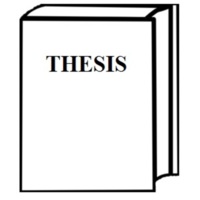Living Arrangements : Race, Ethnicity and Nationality in the Liberal State
Dublin Core
Title
Living Arrangements : Race, Ethnicity and Nationality in the Liberal State
Description
From the author: "Liberals usually argue that cultural identity can flourish in the private sphere but should not matter in public. This argument is blind to the way liberal institutions affect cultural identity, the prejudices that members of some groups face, and the need for there to be only one or two public languages in most modern states. To fill this gap in liberal theory, I divide cultural groups into three: racial, ethnic and national groups. I explore this gap by looking at four groups: American Jews, the Amish, Black Americans and French Canadians....I argue that liberal citizenship transforms ethnic identity, making it difficult though not impossible to maintain strong ethnic ties in the liberal state. I defend these effects on ethnic identity, though I also argue that there is often too much pressure on ethnics to give up their particular practices. Liberal citizenship, though, has not transformed the identity of the Amish, who maintain their identity through a voluntary radical separation from the rest of society. The Amish treasure hierarchical and patriarchal illiberal values, but liberal toleration means that the liberal state should do little about this. Black Americans also have a distinctive culture, not from voluntary separation, but as a consequence of racism. For Blacks to gain equal citizenship, the liberal state must work to make Black citizenship visible and allow Blacks to bypass the effects of racism. This is contrary to the usual liberal argument of making issues of identity private matters. If Blacks gain liberal citizenship their identity would change considerably, just as liberal citizenship has transformed ethnic identity....Many people claim their cultural identity is tied to a particular language, yet most languages have a hard time surviving in industrialized, liberal states. I explain the conditions that languages need to survive. I contend, paradoxically, that because liberalism transforms ethnic identity, liberalism increases the importance of language to the identity of some. While liberalism and nationalism are usually antagonistic, I sketch out a compromise between language-based nationalism and liberalism. I end the dissertation by pointing out the implications my argument has for educational policy and for liberal theory."
Creator
Spinner, Jeffrey Alan
Date
1992
Language
en
Type
Thesis/Dissertation
Identifier
Coverage
20th century; United States
Contribution Form
Online Submission
No
Zotero
Num Pages
338
Place
Ann Arbor, Michigan
Thesis Type
Ph. D., Political Science
University
University of Michigan
URL
Living Arrangements... @ Google Books
Thesis/Dissertation Item Type Metadata
Collection
Geolocation
Social Bookmarking







